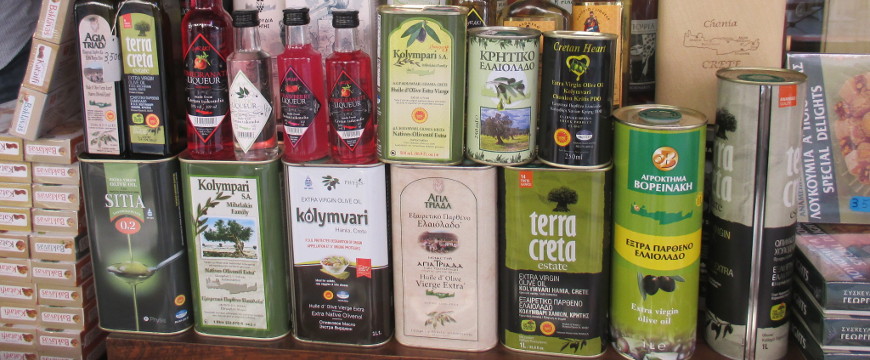There are hundreds of varieties of olive trees, some used mainly for table olives and others generally dedicated to olive oil. Olive oil types are defined differently in North America and Europe, but extra virgin is widely considered the best. Olive oils differ in taste, quality, and health benefits based on a number of variables:
- variety of olives
- care of the olive grove
- climate where they grow
- amount of irrigation or rainfall
- presence or absence of insect pests & plant diseases
- ripeness of olives at harvest time
- harvesting & storage methods
- milling process & temperature
- storage conditions
Of course, the main differences consumers focus on are the results of all of that. The International Olive Council (IOC) and the European Union classify olive oils in various ways, most notably according to one of the following designations:
- extra virgin
- virgin
- lampante virgin (not fit for consumption as it is)
- other types of refined olive oils, blends of refined and virgin oils, and olive pomace oils
The North American Olive Oil Association (NAOOA) now recognizes similar distinctions, adding that "the grade Olive Oil is made by blending Refined Olive Oil with Virgin Olive Oil," while Americans may see "'Light in Flavor' or 'Light Tasting' on the Olive Oil label when there is very little virgin olive oil blended with the refined olive oil." The NAOOA discusses different uses for each type of olive oil. See the NAOOA’s olive oil grade comparison chart for more details about their definitions (by scrolling down on the linked page). For a quick overview from an American perspective, see also Oliveoil.com's infographic. For a more detailed discussion of various official definitions of different types of olive oils, see Olive Oil Times's article "The Categories of Olive Oil."
In both Europe and North America, the flavor and free acidity level (meaning the oleic acid content) are considered, with lower free acidity preferred, and extra virgin olive oil is the best grade.
Some like to save extra virgin olive oil for finishing and dressings, given its potent flavor and higher price. However, many Greeks, especially those who produce it themselves, use extra virgin olive oil everywhere they add fat, in baking, frying, cooking, finishing, sauces, and salads, with excellent results and health benefits.
Extra virgin can be used in all the recipes on this site. Tastings of several different extra virgin olive oils will show that there is a significant variation in flavor even within this best grade, so consumers can select stronger or milder tasting extra virgin oils depending on their preferences and needs.
To find out more about Greek olive oil, also see Everything You Need to Know about Olive Oil from Greece.
All businesses, organizations, and competitions involved with Greek olive oil, the Mediterranean diet, and/or agrotourism or food tourism in Greece, as well as others interested in supporting Greeks working in these sectors, are invited to consider the advertising and sponsorship opportunities on the Greek Liquid : Authentic Extra Virgin Olive Oil website. The only wide-ranging English-language site focused on news and information from the Greek olive oil world, it has helped companies reach consumers in more than 215 countries around the globe.


